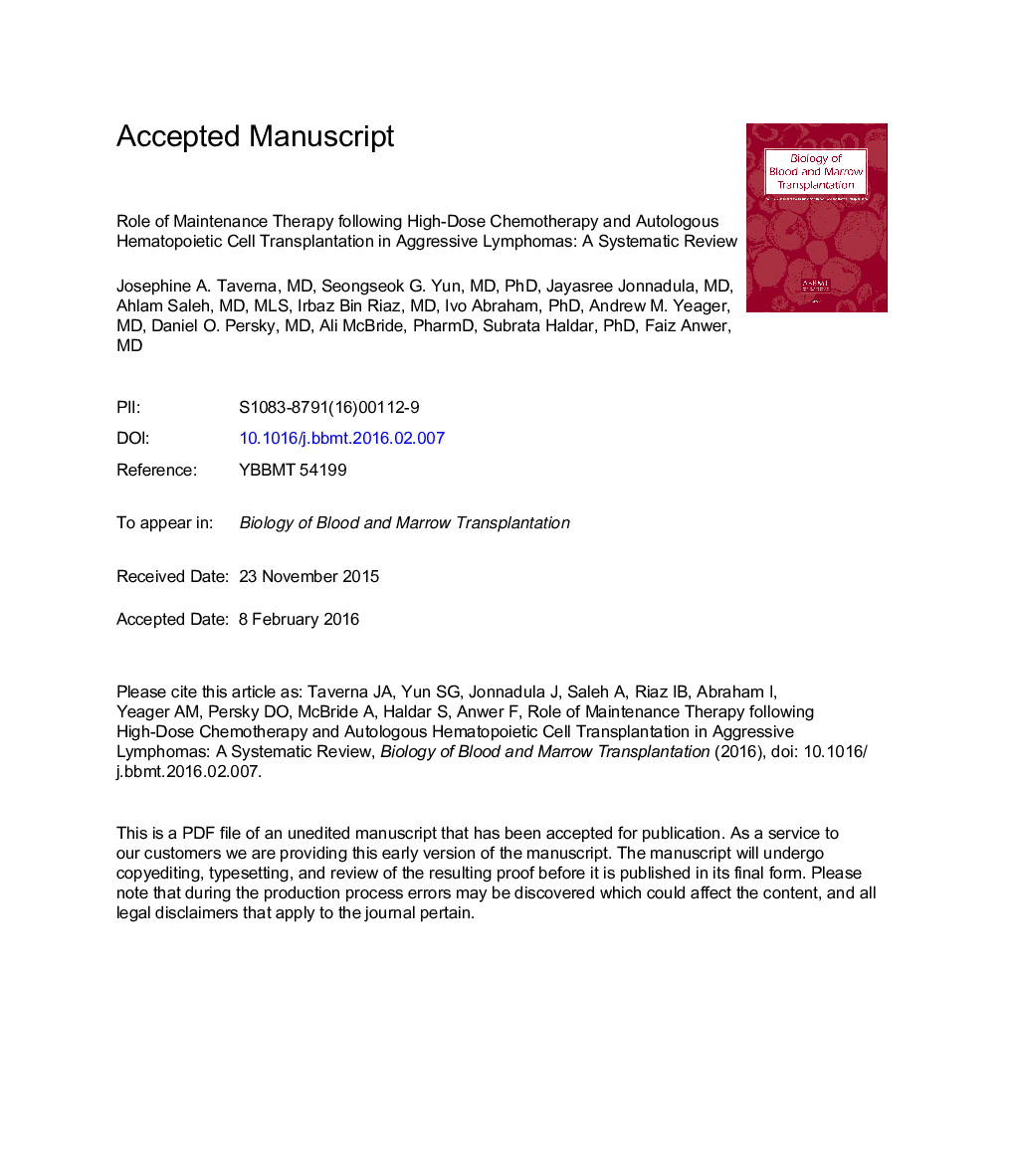| Article ID | Journal | Published Year | Pages | File Type |
|---|---|---|---|---|
| 8430925 | Biology of Blood and Marrow Transplantation | 2016 | 55 Pages |
Abstract
Significant uncertainty exists in regard to the efficacy of maintenance therapy after high-dose chemotherapy (HDC) as well as autologous stem cell transplantation (ASCT) for the treatment of patients with aggressive lymphoma. A systematic review was performed to evaluate the effectiveness of post-ASCT maintenance therapy in patients with relapsed/refractory lymphoma. A comprehensive literature search yielded 4476 studies and a total of 42 studies (11 randomized controlled trials [RCT], 9 retrospective comparative studies, and 22 single-arm studies) were included in the systematic review. There was significant heterogeneity in study design, chemotherapeutic regimens, post-ASCT maintenance strategies, patient enrollment criteria, and study endpoints. Our findings suggest that post-ASCT maintenance immune-targeting strategies, including PD-1/PD-L1 blocking antibodies, rituximab, and brentuximab, may improve progression-free survival but not overall survival. Collectively, the results indicate a need for testing new strategies with well-designed and adequately powered RCTs to better address the role of post-ASCT maintenance in relapsed/refractory lymphomas.
Keywords
Related Topics
Life Sciences
Biochemistry, Genetics and Molecular Biology
Cancer Research
Authors
Josephine A. Taverna, Seongseok Yun, Jayasree Jonnadula, Ahlam Saleh, Irbaz Bin Riaz, Ivo Abraham, Andrew M. Yeager, Daniel O. Persky, Ali McBride, Subrata Haldar, Faiz Anwer,
